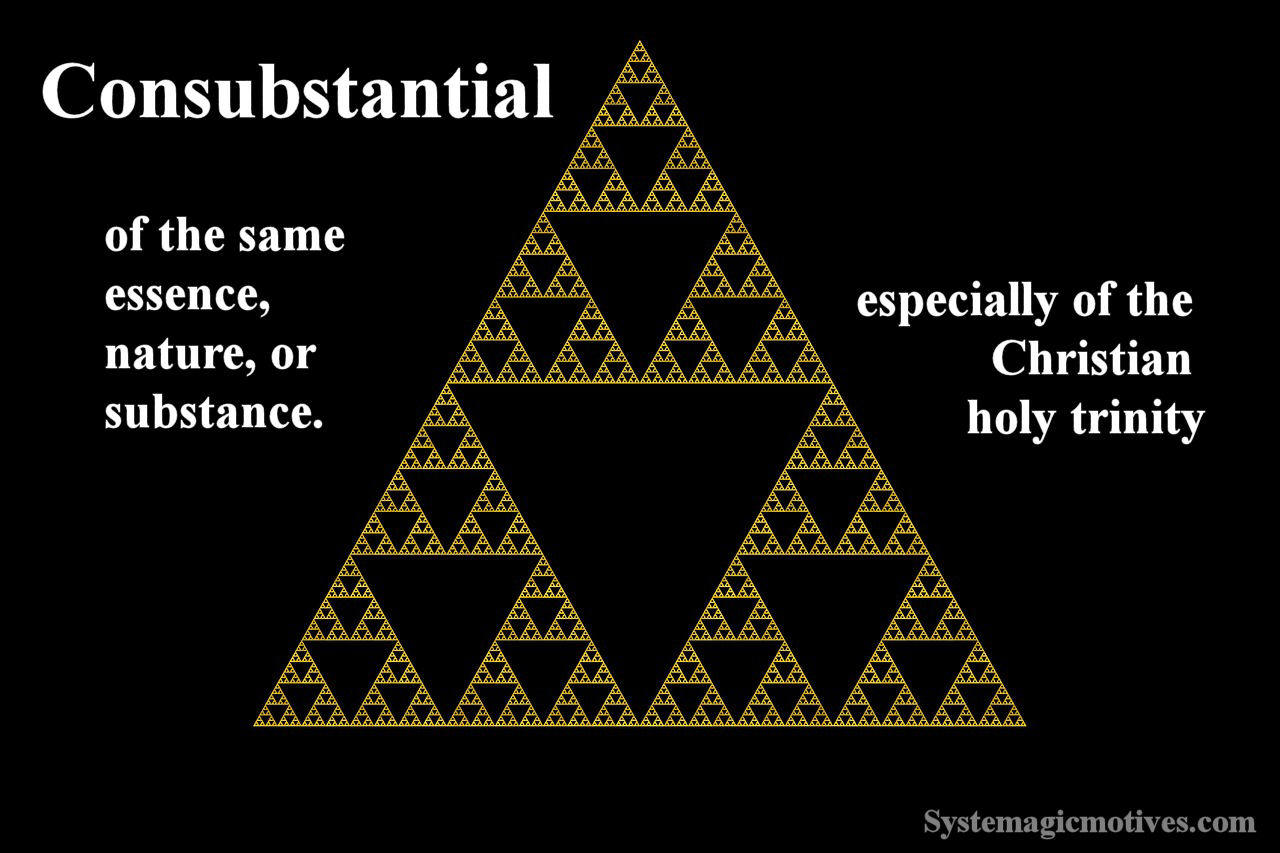

Consubstantial adj. Of the same essence nature, or subbstance,
especially, but not exclusively, of the Christian holy trinity.
Being One with everything is consubstantial
*
The triune nature of man is considered to be
'Body, Mind & Spirit'.
*
The term "consubstantial" is derived from the Latin word "consubstantialis," which means "of the same substance." It is a technical term often used in theological and philosophical contexts to denote the idea of sharing the same essence or substance. In particular, it is prominently used in Christian theology to describe the relationship between the three persons of the Holy Trinity: Father, Son, and Holy Spirit.
In the context of Christian doctrine, "consubstantial" is a key term in the Nicene Creed, which affirms the belief that Jesus Christ, the Son, is "consubstantial" with the Father. This means that Jesus and the Father are of the same divine essence and nature, a concept central to the doctrine of the Trinity. The term was formalized during the First Council of Nicaea in 325 AD to counteract various heresies and clarify the nature of Christ�s divinity, establishing a foundation for orthodox Christian belief.
Beyond theology, "consubstantial" can also be used in philosophical discussions to describe entities that share a common substance or essence. The term conveys a deep level of unity and identity in the nature of the things being discussed, highlighting their intrinsic connection. Although not commonly used in everyday language, "consubstantial" remains a significant term in academic and religious contexts, reflecting its historical importance in defining and understanding complex concepts of unity and essence.
*
*
*
*
Positive Nouns that Describe People
Everything Good about Everything Good
"There is no way to be pointed out save [except] the 'I AM'
It is the birth of the spirit." - Edgar Cayce Reading 262-10